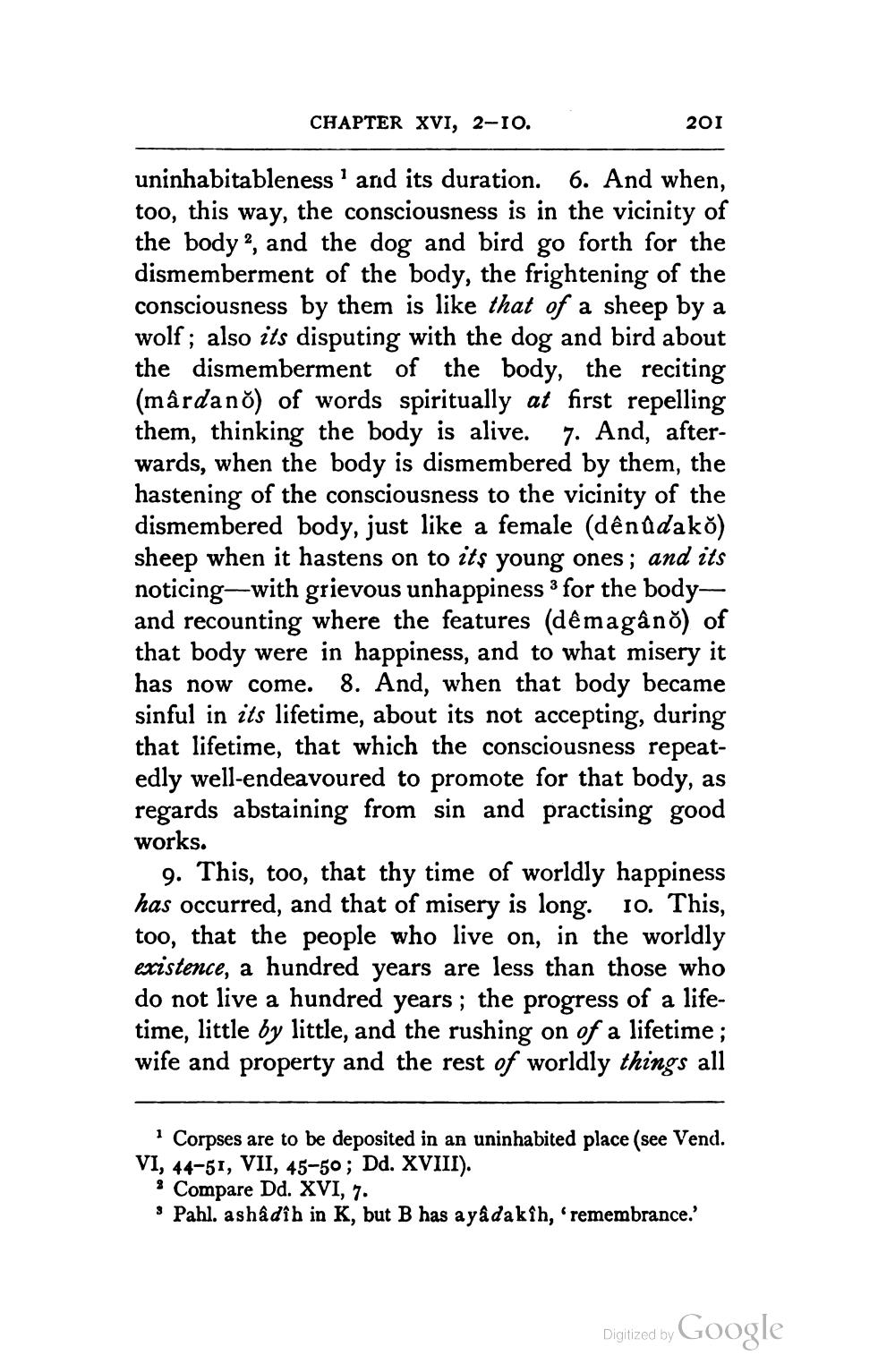________________
CHAPTER XVI, 2-10.
201
uninhabitableness' and its duration. 6. And when, too, this way, the consciousness is in the vicinity of the body 2, and the dog and bird go forth for the dismemberment of the body, the frightening of the consciousness by them is like that of a sheep by a wolf; also its disputing with the dog and bird about the dismemberment of the body, the reciting (mârdano) of words spiritually at first repelling them, thinking the body is alive. 7. And, afterwards, when the body is dismembered by them, the hastening of the consciousness to the vicinity of the dismembered body, just like a female (dênûdakŏ) sheep when it hastens on to its young ones; and its noticing with grievous unhappiness 3 for the bodyand recounting where the features (dêmagânŏ) of that body were in happiness, and to what misery it has now come. 8. And, when that body became sinful in its lifetime, about its not accepting, during that lifetime, that which the consciousness repeatedly well-endeavoured to promote for that body, as regards abstaining from sin and practising good works.
9. This, too, that thy time of worldly happiness has occurred, and that of misery is long. 10. This, too, that the people who live on, in the worldly existence, a hundred years are less than those who do not live a hundred years; the progress of a lifetime, little by little, and the rushing on of a lifetime; wife and property and the rest of worldly things all
1 Corpses are to be deposited in an uninhabited place (see Vend. VI, 44-51, VII, 45-50; Dd. XVIII).
3 Compare Dd. XVI, 7.
Pahl. ashâdîh in K, but B has ayâdakîh, 'remembrance.'
Digitized by
Google




